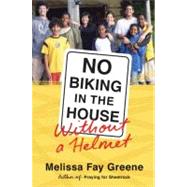
| Introduction: Still Here, After All These Years | p. 3 |
| Room for One More? | p. 13 |
| Nine Hundred and Eighty Thousand Websites | p. 19 |
| Foreign Film Festival | p. 24 |
| Motherhood vs. the Career | p. 29 |
| Chrissy | p. 35 |
| First Trip to Bulgaria | p. 39 |
| Just a Weekend Getaway | p. 46 |
| The Decision | p. 53 |
| Return to Bulgaria | p. 60 |
| Post-Adoption Panic | p. 66 |
| Love at Second Sight | p. 72 |
| The Art of Playing | p. 78 |
| Crash and Burn | p. 83 |
| Monkey icka Lion | p. 90 |
| Sing, Goddess… | p. 95 |
| Enormous Families, Group Homes | p. 99 |
| Dogs We Have Loved | p. 105 |
| The ABCs of Preliteracy | p. 111 |
| A Continent of Orphans | p. 117 |
| First Trip to Ethiopia | p. 122 |
| Old Friends | p. 131 |
| Helen in America | p. 137 |
| Questions of Heaven | p. 144 |
| Why This Is Not a Cookbook | p. 151 |
| Married to the Defense | p. 156 |
| A Boy Moves Out, a New Boy Heads Our Way | p. 163 |
| Meeting Fisseha | p. 168 |
| Searching for Grandmother | p. 173 |
| Tsehai | p. 178 |
| The Labyrinth of Nightmare | p. 185 |
| The Professor Gives Birth | p. 188 |
| The Young Hunter-Gatherer | p. 192 |
| Identity | p. 197 |
| Sandlot Ball | p. 203 |
| Squirrels We Have Known, Also Insects | p. 209 |
| A Wonderful Number of Children | p. 215 |
| An Orphanage League | p. 225 |
| Room for Two More? | p. 233 |
| Their Histories | p. 241 |
| Homeland Tour | p. 246 |
| Class Differences | p. 252 |
| Swim Party | p. 257 |
| Reunion | p. 261 |
| A Family Feast | p. 265 |
| Daniel and Yosef in America | p. 273 |
| Strife | p. 280 |
| Fighting Words | p. 284 |
| A Haunted Night | p. 289 |
| The Silent Treatment | p. 293 |
| Everything You Always Wanted to Know About Sex, but Couldn't Spell | p. 304 |
| Songs of a Summer Night | p. 312 |
| Another Mother | p. 320 |
| The Jewish Guide to Raising Star Athletes | p. 324 |
| Gurage | p. 333 |
| Ten Things I Love About You | p. 341 |
| DNA | p. 347 |
| Acknowledgments | p. 353 |
| Table of Contents provided by Ingram. All Rights Reserved. |
The New copy of this book will include any supplemental materials advertised. Please check the title of the book to determine if it should include any access cards, study guides, lab manuals, CDs, etc.
The Used, Rental and eBook copies of this book are not guaranteed to include any supplemental materials. Typically, only the book itself is included. This is true even if the title states it includes any access cards, study guides, lab manuals, CDs, etc.